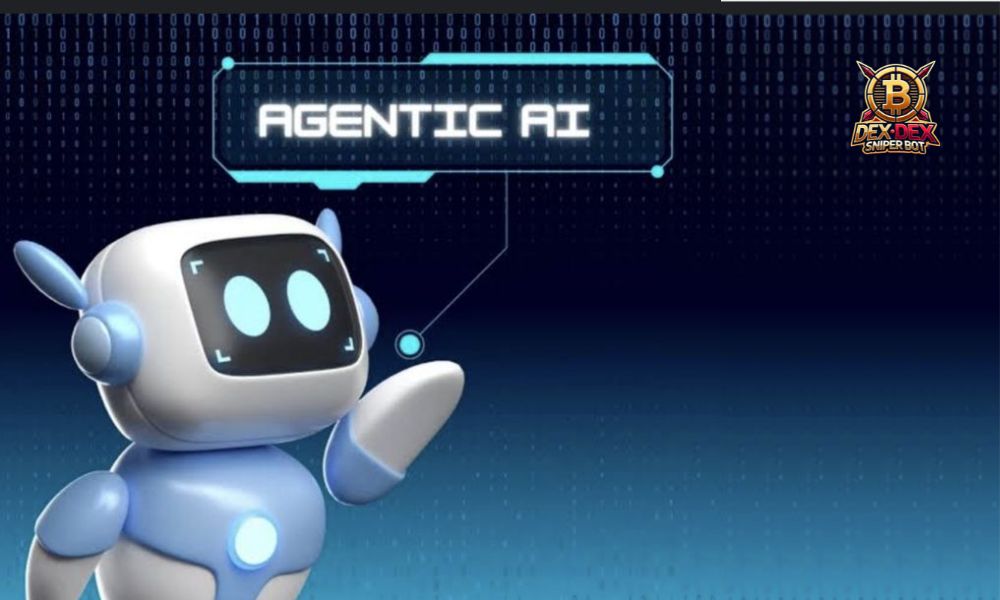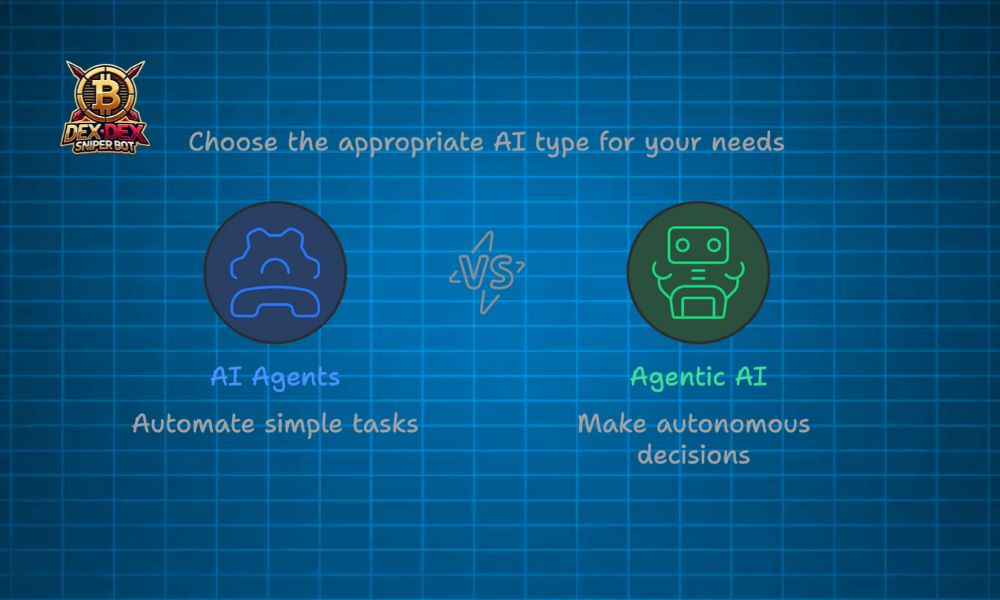AI agent vs agentic AI is an increasingly discussed topic in artificial intelligence, yet the distinction isn’t always clear. This article will delve into these two concepts, clarifying their characteristics, operational methods, and potential applications, providing you with a comprehensive understanding.
Table of Contents
What is an AI agent?
An AI agent is a software or hardware entity capable of perceiving its environment through sensors and acting upon that environment through actuators to achieve specific goals. Simply put, an AI agent is a computer program designed to perform tasks autonomously based on what it “observes.”
Key characteristics of an AI agent include:
- Perception: The ability to gather information from the environment. For example, a chatbot perceives through text messages, while a self-driving car perceives through cameras and lidar.
- Action: The ability to perform actions to change the state of the environment or achieve goals. A chatbot responds to messages; a self-driving car controls steering and brakes.
- Goal-oriented: Operations are directed towards completing one or more predefined objectives.
- Autonomy: The degree to which an AI agent can operate independently without human intervention. However, this level of autonomy is often limited by pre-programmed rules and algorithms.
Examples of AI agents are diverse, ranging from simple virtual assistants like Siri or Google Assistant, bots in video games, to automated industrial control systems. They often operate based on a set of rules or pre-trained models to react to specific situations. This foundational concept is one half of the AI agent vs agentic AI equation.
What is agentic AI?

Agentic AI (AI with agency/self-determination) is a significant step beyond traditional AI agents. The term “agentic” emphasizes the AI’s ability not just to execute tasks but also to proactively set sub-goals, plan, learn from experience, and adapt flexibly to unexpected changes in the environment. An agentic AI possesses a considerably higher degree of autonomy, creativity, and complex decision-making capabilities.
Prominent features of agentic AI:
- Proactiveness: Not just reacting to the environment but actively seeking opportunities, proposing solutions, and taking action to achieve long-term goals.
- Advanced learning and adaptability: Capable of self-improving performance through reinforcement learning, transfer learning, and other advanced machine learning techniques, allowing it to adapt to new situations without explicit reprogramming.
- Complex planning and reasoning: The ability to analyze situations, predict outcomes, and construct multi-step action plans to solve complex and uncertain problems.
- Sub-goal generation: Can autonomously break down large goals into more manageable sub-goals and decide how to achieve them.
Agentic AI is often associated with advanced AI systems like new-generation large language models (LLMs) capable of planning and executing task sequences, or autonomous robots capable of operating in dynamic and uncertain environments. Agentic AI represents a more advanced stage in the AI agent vs agentic AI landscape.
AI agent vs agentic AI: Comparing core differences

The key point when comparing AI agent vs agentic AI lies in the level of autonomy, learning capability, and proactivity.
| Feature | AI Agent | Agentic AI |
| Autonomy Level | Limited, often by predefined rules/scripts | High, capable of complex autonomous decision-making |
| Proactivity | Generally reactive | Proactive, initiates actions |
| Learning | Can learn, but often within limited scope | Continuous learning, strong self-improvement and adaptation |
| Planning | Simple or pre-supplied plans | Complex, multi-step planning, self-generates sub-goals |
| Goals | Predefined and fixed | Can adjust or create sub-goals to achieve larger objectives |
| Examples | Basic chatbots, simple game bots | LLMs executing tasks, advanced autonomous robots |
It can be said that all agentic AIs are AI agents, but not every AI agent reaches the “agentic” level. Agentic AI represents a higher echelon of intelligence and operational capability. The discussion surrounding AI agent vs agentic AI often highlights this hierarchical relationship.
Potential and future
The evolution from AI agent to agentic AI, a central theme in the AI agent vs agentic AI discussion, opens up vast future applications. Agentic AI promises to create smarter virtual assistants capable of truly understanding and supporting users in complex tasks. In science, they could autonomously design and conduct experiments. In business, they could automate complex processes, analyze markets, and devise strategies.
However, the increased autonomy and capability of agentic AI also pose challenges regarding ethics, safety, and control. Building robust monitoring and safety mechanisms for agentic AI systems is crucial.
Clearly understanding the nature of AI agent vs agentic AI helps us grasp developmental trends in artificial intelligence, enabling us to direct research, apply insights, and prepare for the changes this technology will bring. The ongoing exploration of AI agent vs agentic AI will continue to shape the future of intelligent systems.
In summary, an AI agent is foundational, while agentic AI represents a significant leap with higher autonomy and proactivity. To stay updated with the latest and most interesting news about the world of AI and memes, don’t forget to follow Meme Sniper Bot. We bring you insightful analyses!
